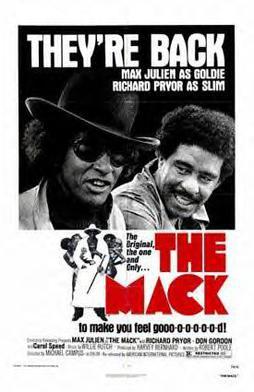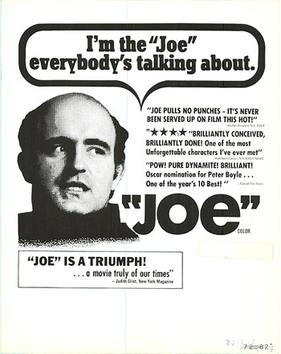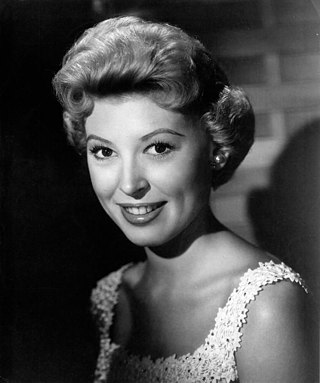Related Research Articles

Shaft is a 1971 American blaxploitation crime action thriller film directed by Gordon Parks and written by Ernest Tidyman and John D. F. Black. It is an adaptation of Tidyman's novel of the same name and is the first entry in the Shaft film series. The plot revolves around a private detective named John Shaft who is hired by a Harlem mobster to rescue his daughter from the Italian mobsters who kidnapped her. The film stars Richard Roundtree as Shaft, alongside Moses Gunn, Charles Cioffi, Christopher St. John and Lawrence Pressman.

Pamela Suzette Grier is an American actress and singer. Described by Quentin Tarantino as cinema's first female action star, she achieved fame for her starring roles in a string of 1970s action, blaxploitation and women in prison films for American International Pictures and New World Pictures. Her accolades include nominations for an Emmy Award, a Golden Globe Award, a Screen Actors Guild Award, a Satellite Award and a Saturn Award.

Sweet Sweetback's Baadasssss Song is a 1971 American blaxploitation film written, co-produced, scored, edited, directed by, and starring Melvin Van Peebles. His son Mario Van Peebles also appears in a small role, playing the title character as a young boy. The film tells the picaresque story of a poor black man fleeing from the white police authorities.

The Mack is a 1973 American blaxploitation crime drama film directed by California native Michael Campus, starring Max Julien and Richard Pryor. The film also stars Oscar-nominee Juanita Moore and Tony-nominated actor Dick Anthony Williams. Filmed in Oakland, California the movie follows the rise and fall of Goldie, on whose return from a five-year prison sentence finds that his brother is involved in Black nationalism. Goldie decides to take an alternative path, striving to become the city's biggest pimp.

Foxy Brown is a 1974 American blaxploitation film written and directed by Jack Hill. It stars Pam Grier as the title character who takes on a gang of white drug dealers who murdered her boyfriend. The film was released by American International Pictures as a double feature with Truck Turner. The film uses Afrocentric references in clothing and hair. Grier starred in six blaxploitation films for American International Pictures.

Uptown Saturday Night is a 1974 American action comedy crime film written by Richard Wesley and directed by and starring Sidney Poitier, with Bill Cosby and Harry Belafonte co-starring. Cosby and Poitier teamed up again for Let's Do It Again (1975) and A Piece of the Action (1977). Although Cosby's and Poitier's characters have different names in each film, the three films are considered to be a trilogy. Uptown Saturday Night premiered on June 15, 1974 at the Criterion Theatre in New York and opened to positive reviews.

Joe is a 1970 drama film written by Norman Wexler and directed by John G. Avildsen. It stars Peter Boyle, Dennis Patrick, and Susan Sarandon in her film debut.

Barbara Ruick was an American actress and singer.

The Compton Police Department was the municipal law enforcement agency for the city of Compton, California until it was disbanded by the City Council in September 2000. The Compton City Council then contracted with the County of Los Angeles for law enforcement services provided by the Los Angeles County Sheriff's Department.

Cisco Pike is a 1972 American drama film that was written and directed by Bill L. Norton, and released by Columbia Pictures. The film stars Kris Kristofferson as a musician who, having fallen on hard times, turns to the selling of marijuana and is blackmailed by a police officer.
Jamaa Fanaka was an American filmmaker. He is best known for his 1979 film, Penitentiary, and was one of the leading directors of the L.A. Rebellion film movement.

Blaxploitation is an ethnic subgenre of the exploitation film that emerged in the United States during the early 1970s. The term, a portmanteau of the words "black" and "exploitation", was coined in August 1972 by Junius Griffin, the president of the Beverly Hills–Hollywood NAACP branch. He claimed the genre was "proliferating offenses" to the black community in its perpetuation of stereotypes often involved in crime. The genre does rank among the first after the race films in the 1940s and 1960s in which black characters and communities are the protagonists and subjects of film and television, rather than sidekicks, antagonists or victims of brutality. The genre's inception coincides with the rethinking of race relations in the 1970s.
Tough, also known as Johnny Tough, is a 1974 blaxploitation film about a young teenager who rebels against authority.
Deliver Us From Evil is a 1976 American film directed by Horace Jackson.

Fay M. Jackson was an American journalist based in Los Angeles. Jackson founded the first Black news magazine on the West Coast, Flash, in 1928, and during the 1930s became the first Black Hollywood correspondent for the Associated Negro Press.

African American cinema is loosely classified as films made by, for, or about Black Americans. Historically, African American films have been made with African-American casts and marketed to African-American audiences. The production team and director were sometimes also African American. More recently, Black films featuring multicultural casts aimed at multicultural audiences have also included American Blackness as an essential aspect of the storyline.
Lillian Cumber was an African American columnist, gospel music group booking agent, and an agent for actors in Hollywood. She represented African American actors. She was inducted into the Black Filmmakers Hall of Fame in 1974.
Passing Through is a 1977 American film directed by Larry Clark and co-written by the director and by Ted Lange.
Living Between Two Worlds is a 1963 American film and Horace Jackson's debut film. The film was publicized as the first full-length feature film independently financed, written and produced by African Americans with an all African American cast.
References
- 1 2 3 4 5 6 Thomas, Bob (June 15, 1971). "Man Refused To Give Up; Developed Movie Brain Child". The Columbia Record . p. 23 – via Newspapers.com.
- ↑ Gaghan, Jerry (September 15, 1964). "Leaving a Winner After 11 Years". Philadelphia Daily News . p. 33 – via Newspapers.com.
- ↑ Crist, Judith (August 5, 1974). "Star's Trek". New York Magazine . p. 53. Retrieved October 2, 2022– via Google Books.
- ↑ Miller, Jeanne (January 21, 1964). "Negro-Produced Movie, 'Two Worlds' Opens Soon". San Francisco Examiner . p. 19 – via Newspapers.com.
- ↑ Seidenaum, Art (February 17, 1964). "A Negro's Sermon on Film". Los Angeles Times . p. 57. Retrieved October 1, 2022– via Newspapers.com.
- ↑ Sieving, Christopher (2011). Soul searching : Black-themed cinema from the March on Washington to the rise of blaxploitation. Middletown, Conn.: Wesleyan University Press. p. 45. ISBN 978-0-8195-7134-2. OCLC 726747945 – via Google Books.
- ↑ Smith, Vern (February 8, 1971). "Bus Is Coming' In Compton:Negro Film Goes On Camera". Independent. Long Beach, California. p. 16 – via Newspapers.com.
- ↑ "Movie center plan emerges". The Southwest Wave. July 1, 1971. p. 17 – via Newspapers.com.
- ↑ Thomas, Kevin (July 9, 1971). "The Black Experience". The Los Angeles Times . p. 65 – via Newspapers.com.
- ↑ "AFI|Catalog". catalog.afi.com. Retrieved October 20, 2022.
- ↑ "[Grindhouse Gems] Uncovering Johnny Tough • EBONY". July 23, 2016.
- ↑ Ward, Renee (December 28, 1975). "'The Crossover' Goes Beyond Blaxploitation". The Los Angeles Times . p. 283 – via Newspapers.com.
- ↑ Thomas, Kevin (October 10, 1974). "Why Johnny Can't Relate". The Los Angeles Times . p. 81 – via Newspapers.com.
- ↑ "Tarantino, Rodriguez bask in Death and Terror". Reuters. March 15, 2007. Retrieved October 21, 2022.
- ↑ "Black Producer Honored". The Atlanta Voice . August 23, 1975. p. 14 – via Newspapers.com.